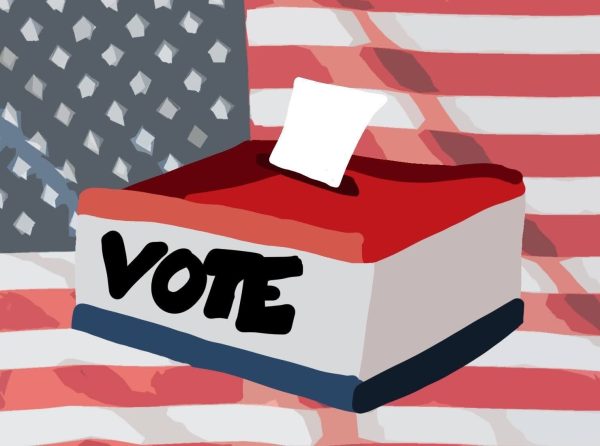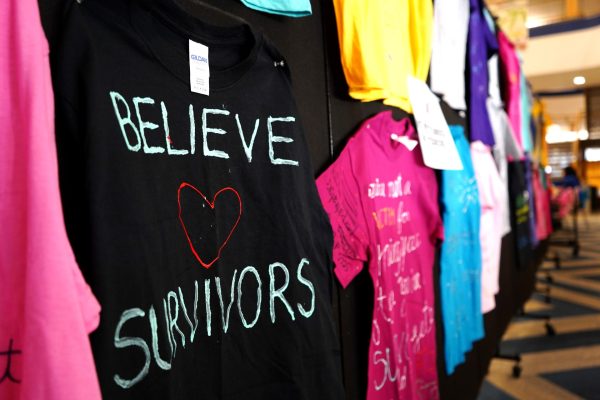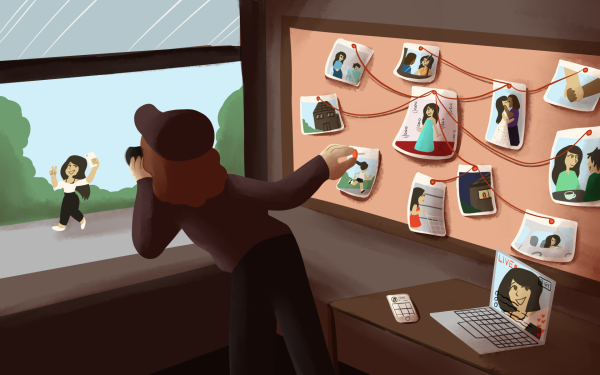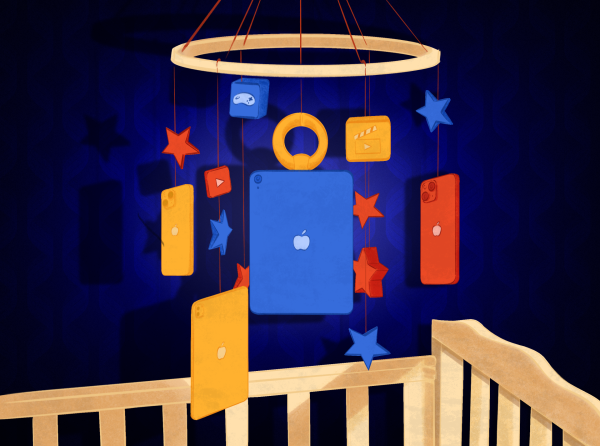OPINION: We’re losing the media war
As technology embeds itself into their personal lives, young people are getting overwhelmed

Social media overload is the silent killer of our generation. It affects millions of us, and though many realize its danger, the average young adult does little to escape our internet prisons. Many of us gladly or unknowingly fall into its deadly clutches—and it is having a powerful effect on our daily lives.
After the sexual revolution of the 1960s, rates of teens having sex shot through the roof—peaking in the 1980s at a paltry six percent of young adults having never had sex before. But that rate is closer to 15 percent now. The Centers for Disease Control and Prevention found that from 1991 to 2017, the number of teenagers who’d had sexual intercourse had dropped from 54 percent to 40 percent. Despite the rise of hookup apps and the decrease in religious or moral objections, young adults—whether they be male or female—are simply not having sex as much.
We are the most anxious generation in history. Those Generation Zers just becoming young adults and the late-millennials share this trait. We are having less sex, attending fewer social events, hang out with friends less often, have fewer close friends, are more likely to report being depressed and die by suicide more than previous generations.
As a business student, my first impulse was to look at these trends from an economic angle. In free markets, a ratio of 20 percent to 80 percent typically emerges between those who “have” and those who “have not”—it’s a ratio that tends to exist in wealth inequality, business productivity and our most-talked-to friends (which is to say, we talk to 20 percent of our friends 80 percent of the time). My assumption was the same would hold true in a sexually liberated economy. But the historical and qualitative analysis doesn’t corroborate this as a cause. Both men and women alike are not having sex.
The issue is surely not one of perception because sex pervades our every waking hour. Most of us use social media in some capacity, and the world’s sexiest models and athletes are the most popular among us. Sex is sold in the form of clothing: Calvin Klein, Lululemon and Canada Goose hire extremely attractive models. Sex is sold to us in media: Game of Thrones can be surmised as “sex and war”—two topics certain to get the blood hot. Nor is the issue one of free time, because baby boomers and Gen Xers worked more hours than 16-to-29-year-olds do. Somehow, they found time.
Professor Daniel Strunk of the DePaul Marketing Department has an idea as to why we’re seeing a change.
“Kids these days are more conservative compared to older generations in an effort to rebel,” Strunk said.
Strunk also said that voting trends of white 18-year-olds in 2016 and 2018 are more conservative. There is a common conception in society that generations tend to conform to the opposite trends of their parents’ in an effort to rebel. But this cannot be true. Our generation conforms to the economic, social and philosophical trends of early millennials. Further, all generations since the boomers have continued their march against perceived social injustices. For all intents and purposes, Gen Z is as liberal as millennials. Generations do not rebel—they go along with the cultural momentum of the time.
The issue is not media itself, but the quantity in which we use it. After all, what use is there to have sex with someone when Reddit, YouTube, Netflix or League of Legends tantalize us with their sirens’ call? Using media in such vast amounts has literally rewired our brain’s receptors, because humans are scientifically proven to, on average, prefer short-term pleasure to long-term benefit. Like Pavlov’s fabled dog, whenever we think of media, we need only press a button to access its short-term pleasures.
Perhaps you limit yourself to an hour of Reddit a day, only viewing 30 pictures on Instagram, or just five YouTube videos. But even a single glance at your turned-off phone can send your blood pressure spiking. The real danger isn’t media itself—it’s what media does to our subconscious minds.
It’s no wonder that anxiety is by far the most common untreated mental health issue for young adults. The common trend goes like this: You glance at your Instagram feed, see the carefully-pruned model-esque photos of a friend more attractive than you and you feel depressed for the rest of the day. Or you see a group of acquaintances on Snapchat at McGee’s on a Thursday night. Or you read a story on Reddit about a cool adventure another person went on.
Humans are competitive by nature, and we constantly compare ourselves with others. This can be used to reassure us, frighten us or, more commonly, excite our senses. Humans crave excitement, but it is killing us—driving us to believe that life is passing us by.
Life never truly passes any of us by, no matter how mundane it may seem. Remember that appearances of others are always deceiving. There is a common lie told among us all through media that we are happy. The reality is, very few of us are. But what can be done? One must not swear off modern life to become a neo-luddite farmer on the edge of the known world. Media, like the sun or the stars, is a tool for humans which our generation must learn to harness. And who better to know the dangers of social media than those it most affects?
The change comes from all of us. We must use social media to support influencers and vloggers of genuine merit. People who educate, elucidate or make us feel happy. Swear off all media which exists to propagate itself or to feed on your anxiety. Use social media to better yourself; not feed vicariously off as the sole source of your worldview. One of my favorite sites is the “Instagram reality” forum on Reddit, which shows you the realistic photos in contrast to what ends up getting posted. We must learn to look at the world again through a realistic lens. This may only come through living in a realistic lens.
It is easy for us young adults to get caught up in the phlegmatic excitements of the world. But, humans are delicate creatures. Living too long in the land of broken glass and shattered things will only lead to great unhappiness and anxiety with the world. We may not be able to control the reality we’re raised into, but we can control how we interact with it. Think of dealing with social media as this generation’s Great War. It is not an easy battle, and it is certainly one we would prefer not to fight. But we must learn to conquer this foe, or be conquered by it.












nelson scout • May 2, 2019 at 11:20 pm
HERPES CURE
Natural herbs have cured so many illness that drugs and injection cannot cure. I’ve seen the great importance of natural herbs and the wonderful work they have done in people lives. i read testimonies on line how they were cured of herpes, HIV, diabetics etc by Dr.OOSA herbal medicine, so i decided to contact him because i know nature has the power to heal anything. I was diagnosed with herpes for the past 9 months but Dr.OOSA cured me with his herbs and i referred my aunt and her husband to him immediately because they were both suffering from herpes but they were cured too.He is a trusted and honest man,I later went for herpes test and the result came out negative,all thanks to Dr OOSA. Contact Dr. OOSA via email: [email protected]